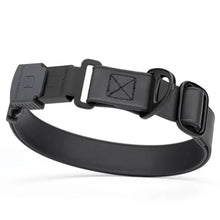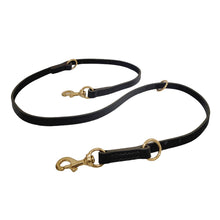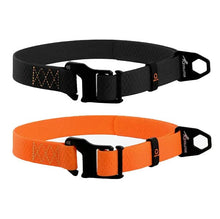5 Ways To Help Prevent Dog Farts

Dog farts can’t kill you but sometimes they smell like they can. If you share your space with a gassy dog, there are some things you can do to help yourself and your pup escape the fumes and feel better.
Dog flatulence, commonly referred to as dog farts, is caused by the formation of gas in the stomach or intestines. The medical term for this gas is flatus, which refers to the buildup of air or gas that is then passed through the anus.
You probably don’t need a vet to tell you if your dog is gassy or not. Some people even think they are doomed to live with a dog that passes gas all the time. The good news is, by understanding what contributes to the buildup of gas, you can help reduce it.

When Gas Can Becomes Deadly
Aside from wanting to escape the stench and help keep your pup more comfortable, there is another important reason to help prevent gas from forming. Gastric torsion and gastric dilation volvulus (GDV) also known as bloat is a life-threatening condition that can affect German shepherds and other deep-chested dogs.
Bloat happens when a dog’s stomach fills with gas, which can become twisted. No one knows exactly what triggers bloat but when it happens, it is a true emergency. If bloat causes the dog’s stomach to twist, the results can be deadly, even with surgery.
Gastric torsion or bloat can be triggered by stress as well as diet. The symptoms include a distended stomach, breathing problems, pacing, distress, anxiety, drooling, unsuccessful vomiting or vomiting foamy mucus, restlessness, and pain.

Causes of Canine Gas
A change in diet or dietary indiscretion is the most common cause of gas. Since dogs are also scavengers, they will eat just about anything they find tasty, which can result in a bad case of gas.
But a healthy diet that is poorly digested can also cause gas. For whatever reason, some dogs just can’t digest certain ingredients or foods and get gas as well as other digestive problems. This poor digestion is uncomfortable and may lead to more health problems than just a few farts.
When dogs have poor digestion, their food ferments in the colon. This fermentation causes gas to form and can even irritate the lining of the gut. Some foods that may contribute to this problem include peas, soybeans, legumes, milk products (goat’s milk), high fat, and spices (turmeric). But a dog can be sensitive or react to many things so a limited ingredient or an elimination diet can be helpful when removing the usual culprits doesn’t help.

So, if your dog is fed a high-quality, healthy diet and still suffers from gas or any other digestive problems, they may have a sensitivity or could even be suffering from a digestive disorder, which needs to be treated by a vet to ensure they can absorb the nutrients in their food.
Some of these disorders include inflammatory bowel disease (IBD), small intestinal bacterial overgrowth (SIBO), irritable bowel syndrome (IBS), and exocrine pancreatic insufficiency (EPI), colitis, pancreatitis, parasites, and cancer-all of which cause gas as well as other symptoms.
Now that you have some good reasons to want to help reduce gas in your dog, let’s move on to how to help get rid of the farts.

1. Slow them Down at Mealtimes
Some dogs just swallow more air than others. For those pups, there is not much that you can do. Brachycephalic or flat-faced dogs with shortened snouts (think Frenchies, boxers, bulldogs, pugs, etc.) and notorious fast eaters (think labs) tend to swallow more air, especially when they eat.
Luckily, German shepherds are the opposite of flat-faced so unless they eat super-fast or gulp their food, they don’t have this problem. However, if your German shepherd does eat fast or gulp, you can help slow them down by feeding them from a food puzzle or slow feeder.

2. Change their Diet
Some gassy dogs may do better after a diet change. When doing this, start slow and consider a sensitive stomach diet that doesn’t contain lots of gassy ingredients, like beans and soy. Foods formulated for sensitive systems are easier to digest and may be lower in fat and fiber. It can take up to three months to adjust to a new food, so unless the food you change to increases gas, it will take a bit to see long-term change
3. Cut Down on the Treats
Foods high in dairy, fat, and sugar are notorious for giving dogs gas. So, nix the table scraps, prevent counter surfing, hide the trash, and stop feeding those bites of bacon, hotdogs, and gassy veggies and see if it helps.

4. Rule Out Health Problems
Occasional gas is normal, but some gas can also be painful. But dogs that suffer from continual gas, discomfort, diarrhea, or a gurgling stomach, and other gastrointestinal problems should see their vet to rule out underlying health problems.
5. Try Probiotics
Since dogs eat so many germy things, their natural gut biome can become out of balance, which can also cause gas. Probiotics, also known as good bacteria, can help restore balance and reduce gas. Probiotics are natural and offer many health and digestive benefits so you really can’t go wrong by trying them.

We hope you found these tips helpful. Gas is no fun for you or your dog and can even cause pain, discomfort, or lead to bloat so it’s worth trying to figure out what might be causing it if their gas is frequent or distressing. As always, please feel free to share with your friends.
You might also like: How To Read Dog Food Labels






















